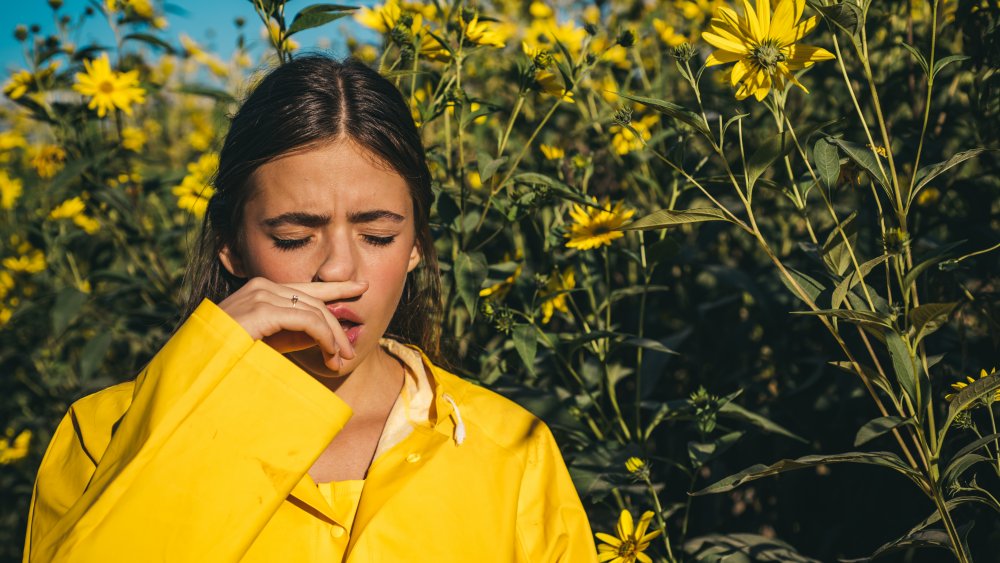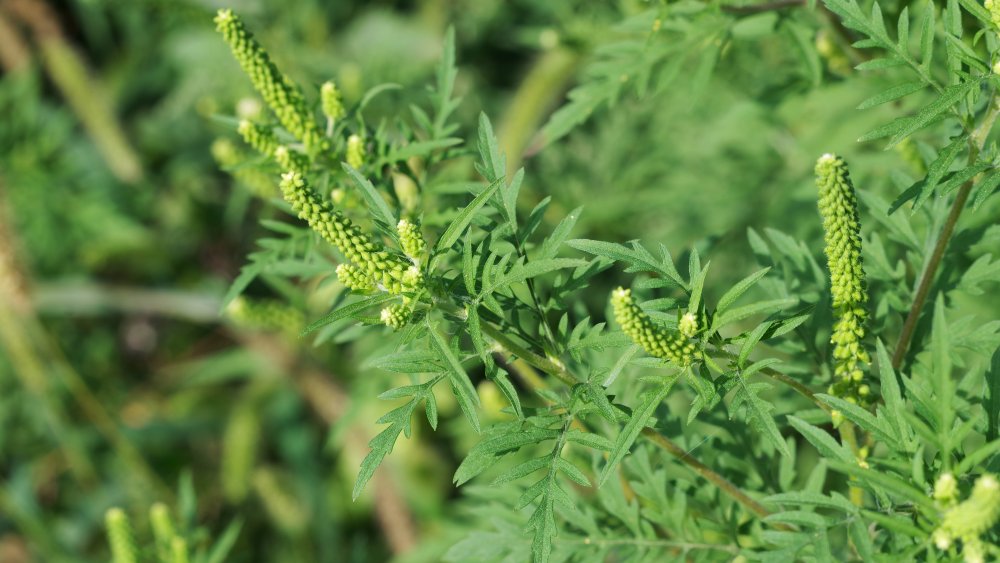The Real Reason Your Allergies Are So Much Worse This Fall
We can point a finger at the coronavirus for a lot of changes in our daily lives. But if your eyes have felt inflamed for weeks and you're more congested than usual this fall, climate change is the real culprit, allergy specialists say. That's because it has caused warmer global temperatures, less rainfall, and other severe weather patterns (via Vogue).
"Allergy seasons are getting worse because of climate change," Caroline Sokol, M.D., Ph.D., a clinical scientist at Mass General Hospital in Boston who specializes in Allergy and Immunology, told Vogue. "We no longer get to the first frost as quickly in the Fall, and in the Spring the trees are blooming a little bit earlier." Those same conditions — high temperatures, low humidity, low rainfall, and high winds — have increased the risk of wildfires, such as those burning across California, eight- to 10-fold over the past four decades, researchers say (via BBC).
For allergy sufferers nationwide, this means less rain to quash problematic allergens like ragweed, which is thriving thanks to low rainfall this summer, especially in the Northeast, says J. Allen Meadows, M.D., president of the American College of Allergy, Asthma, and Immunology.
About 23 million Americans have symptoms of a ragweed allergy, according to the Asthma and Allergy Foundation of America. For most of the United States, ragweed season peaks in mid-September, lasting about six to ten weeks (via AAFA).
Choose an OTC antihistamine to fight allergies
One ragweed plant can produce up to 1 billion grains of pollen, which can travel as far as 400 miles out to sea and two miles high in the atmosphere. Rain and temperatures below 50 degrees Fahrenheit slow the release of ragweed pollen, the AAFA says. However, since 1995, the U.S. Environmental Protection Agency notes that ragweed pollen season has increased in 10 locations from Oklahoma north into Canada, stretching as much as 25 days longer (via EPA).
Although 17 types of ragweed grow in North America, ragweed has plant relatives that cause similar allergy symptoms, such as a stuffy or runny nose, sneezing, postnasal drip (mucus in the throat), and puffy or itchy eyes. These plants include mugwort, rabbit brush, burweed marsh elder, and sage.
Over-the-counter antihistamines such as Claritin, Zyrtec, Xyzal, and Allegra are the best way to temporarily block your body's allergic reaction. Zyrtec is the strongest, but it can make people sleepy. People with allergy-induced asthma may fare better with Singulair, which is available by a prescription.
If you're wondering whether you have COVID-19 instead of allergies, medical experts say that the coronavirus tends to affect the entire body, causing symptoms such as severe headaches, fever, fatigue, and diarrhea. If you have any of those symptoms in addition to your typical allergy symptoms, talk to your doctor about a COVID-19 test.


